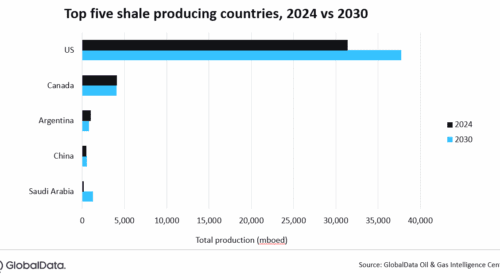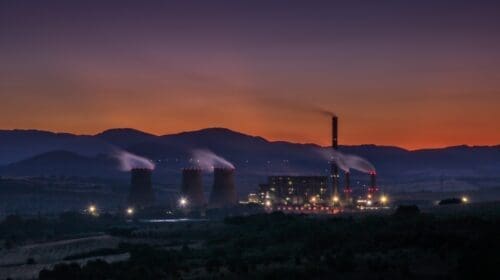As the oil and gas industry embraces digital transformation, many new career opportunities emerge. These roles are integral to helping energy companies streamline their operations and leverage the benefits of predictive maintenance, artificial intelligence, and advanced analytics.
Professionals in these fields are tasked with addressing the challenges of vast datasets, ensuring safer operations, enhancing productivity, and reducing unplanned downtime. The digital revolution in the oil and gas sector is creating roles that combine traditional energy expertise with a deep understanding of digital technologies.
What is Digital Transformation in the Oil and Gas Industry?
Digital transformation in the oil industry includes applying digital tools to optimize production processes, improve business decisions, and foster a culture of innovation. It is a critical response to the changing global market and the energy transition, enabling companies in the industry to remain competitive.
Crucially, digital transformation involves breaking down data silos, implementing advanced data analytics, and utilizing digital twins for improved asset management. Adopting these technologies can provide valuable insights, accelerate digitalization, and help overcome the challenges that oil and gas companies face. However, the transition also necessitates a shift away from legacy systems, requiring individual companies to embrace digital and foster technology partnerships.
Virtual reality revolutionizes training and safety procedures, while data science drives business models that can predict market trends and optimize resource allocation. The industry faces a significant challenge in managing the vast amounts of data generated by upstream, midstream, and downstream processes. Advanced data management techniques are therefore central to digitalization in the oil and gas industry.
Top 15 Careers in the Oil and Gas Digital Transition
In this digital transition, various roles have become critical for energy companies. These roles, from analysts and developers to cloud infrastructure architects, are at the forefront of implementing predictive maintenance, optimizing operations, and facilitating the digital transition in the oil and gas industry.
Here are the top careers you should consider:
1. Analyst/Developer
The Analyst/Developer in the oil and gas industry is a real brainiac. This person collects and analyzes data like a champ, always peering keenly at all the sets of numbers and trends. He’s the Sherlock Holmes of the industry, deducing critical insights from a sea of data.
When an oil company’s strategy runs on fumes, this analytical whizz can sniff out the inefficiencies and recommend changes that can save the day. Like a skilled mechanic tinkering under the hood, he can tune up the operation so it runs smoother and more efficiently. It’s like oiling a squeaky wheel or swapping an old, busted gasket with a shiny new one.
But their job isn’t just about patching up leaks. These analysts can foresee the shifts in the road, predicting demand based on changing consumer and industry behaviors. Over time, these trends have proven to be as unpredictable as a wild rodeo bull. Remember the COVID-19 pandemic? It threw a real wrench into the works, but a good Analyst/Developer can help a company navigate such rough patches, riding high above the tumult and reaching stable grounds.
With the right set of data and some solid science, an Analyst/Developer can help oil and gas companies develop educated long-term production plans. They’re not just solving problems for today; they are setting up the industry for a better tomorrow. It’s a job that takes street smarts and book smarts in equal measure.
2. Software Engineer
In this ongoing saga of the oil and gas digital transition, the Software Engineer is a leading character. These tech wizards are to the oil and gas companies what a dependable truck is to a hardworking farmer – always there, ready to work, and tremendously vital.
See, these Software Engineers are behind the scenes, building the tools that oil and gas companies need to function. They are crafting sturdy wrenches and solid drilling bits in digital form. They help with everything from pipe measurement to reservoir management. As a seasoned ranch hand might rope a steer, these folks rein in wayward data and wrestle it into usable forms.
A Software Engineer can be a real boon in finding the best drilling locations. It’s like being a prospector with a superpowered divining rod that’s been pimped out by technological advancements. They can analyze various variables and predict where black gold might hide under the earth’s crust. In a business where location is everything, this skill is crucial.
The importance of Software Engineers to the oil and gas industry is without question. With all the software they develop, they’re building a digital highway that guides oil and gas companies toward the future, far beyond the dusty roads of the past. Every pipeline measurement, reservoir management tool, and insightful drill-location prediction is a vital mile marker on this highway. Capping things off, in the grand oil field of the digital transition, Software Engineers are the innovative derrick hands, tirelessly ensuring smooth, uninterrupted flow.
3. Technical Architect
The oil and gas industry may seem unlikely for a Technical Architect, but when the digital transition starts humming, they’re the folks everyone’s looking for. They shuffle between the upper brass and the code crunchers, ensuring everyone is tuned in to the same frequency. They’re the project manager, smoothing over any potential hiccups and keeping things running as sleek as a greased piston.
The role of a Technical Architect in digital transformation involves collating vital information regarding the company’s objectives and requirements. Their purpose isn’t just to collect jargon-filled documents and synthesize the details into a cohesive plan. It is no small task to take these lofty ambitions from the corporate boardrooms and translate them into the developers’ language.
With their understanding of the big picture, they act as the rudder that guides the development team. They ensure that the new integrated applications or systems do precisely what they intend to execute. The Technical Architect is the cornerstone for ensuring the digital transition in the oil and gas industry occurs precisely and effectively.
They go from one meeting to another, jotting down notes, building bridges, and clear communication channels. Being a Technical Architect in the oil and gas industry during a digital transition is like playing a high-stakes game of telephone. It’s a significant gig, showing how much technology impacts every industry.
4. Application Engineer
If you think about it, Application Engineers are the mad oil and gas industry scientists. They’re creating, tweaking, and calibrating the equipment that hums this enormous industry. This isn’t a job for a keyboard warrior, though. It’s more about getting your hands dirty and wrestling with tangible, physical stuff.
Application engineers have a broad task ahead of them. They need to calculate specs and performance requirements for machinery that would make most people’s heads spin. These aren’t your run-of-the-mill office appliances. We’re talking about high-tech, heavy-duty stuff, like computerized oil rig equipment or complex gas detection and filtration systems.
They’re not just confined to mechanical stuff, though. Application Engineers also delve into the digital world using various programming languages to build software that can manipulate the hardware.
5. Data Engineer
The role of a data engineer in the oil and gas digital transition is like being a sheriff, keeping order in the Wild West of numbers and digits. They are the folks responsible for lassoing in raw data straight from the oil fields and gas plants and taming it into formats that other tech whizzes can make sense of.
One cowboy doesn’t rustle up all the cattle alone; he needs a team. That’s where data engineers come in, working with supply chain management. They’re developing new processes and best practices, so all the relevant data is wrangled into a proper corral. These processes aren’t just about improving the quality and reliability of data but ensuring the information is accurate, consistent, and in a format that can be easily read by Joe and Jane down at headquarters.
In other words, think of a data engineer as a digger of digital wells, extracting the crude oil of raw data and refining it into the premium gasoline of usable information. They are the unsung heroes behind the scenes, paving the way for the digital transition in the oil and gas industry.
6. UX Designer/Researcher
The complexities of software applications in the oil and gas industry necessitate the role of UX Designers and Researchers. These professionals contribute significantly towards making sophisticated technology accessible and user-friendly. They ensure that the software or applications being developed are efficient and easy to operate.
UX Designers and Researchers play a vital role in understanding the goals of a business and aligning them with the needs of the end-users. They design and develop applications to create an effective and intuitive user experience. This is particularly important in managing the day-to-day operations of oil rigs, where applications need to be user-friendly and efficient.
Focusing on the user experience can help an application perform valuable business tasks more effectively. Their role is crucial in the digital transformation of the oil and gas industry, as they work towards creating software or apps that are not only functional but also user-centric.
7. Scrum Master
The Scrum Master is a crucial cog in the Agile software development methodology machine. It’s a hands-on job of ensuring teams deliver value to end users as quickly and efficiently as possible.
One of the jobs of a Scrum Master is to help onboard developers. It seems simple enough, but it’s about more than just orientation and showing them the break room. It’s about ensuring the right people fill the appropriate positions within the team. The Scrum Master has to identify the strengths and weaknesses of every individual and align them with the right role. Sounds a bit like being a sports coach, doesn’t it?
Being a Scrum Master is also about eliminating inefficiencies and prioritizing deliverables in the development pipeline. This job is like being a conductor in an orchestra, keeping everyone in sync and hitting the right notes at the right time. On top of all that, this role requires them to act as the communication bridge between the end users in the oil and gas sector and the development teams. So, if you’re a people person who is also tech-savvy, this could be a career you’d want to consider.
8. Field Engineer
A field engineer plays another important role in the digital revolution of the oil and gas industry. Field Engineers are responsible for determining the specifications and performance requirements for equipment used in industrial environments. They play a crucial role in integrating new technology and equipment into existing assets by conducting a comprehensive cost analysis.
Field Engineers in the oil industry aren’t just doing inspections, though. They’re also number crunchers. By that, I mean they’re responsible for calculating cost analyses for integrating new technology and equipment into existing assets. It’s like shopping on a budget but on a larger scale. You have to figure out if it’s worth buying the new, shiny gadget or sticking with the old one.
Lastly, a Field Engineer also has the crucial task of adapting existing equipment to unique oil and gas-related job applications. In simpler terms, they’re the ones who make sure everything works seamlessly. It’s a bit like a mechanic, ensuring all the parts fit and function well together.
9. Digital Plant Process Engineer
As the oil and gas industry continues to evolve and embrace digital transformation, the role of a Digital Plant Process Engineer has become integral. These professionals use their extensive knowledge of programming languages and industry-specific applications to improve and optimize processes within the oil and gas sector. Their duties often revolve around determining the specifications and performance requirements for equipment used in industrial environments, such as those found in Saudi Aramco, one of the world’s leading oil companies.
Part of the Digital Plant Process Engineer’s role involves integrating real-time data into the operational framework of oil and gas facilities. They are responsible for calculating a cost analysis for integrating new technology and equipment into existing assets, ensuring the adoption of these technologies is both efficient and cost-effective. Their expertise allows them to adapt existing equipment for unique oil and gas-related applications, thereby improving operations and contributing to the digital transition.
Furthermore, Digital Plant Process Engineers are tasked with making the complex world of natural gas extraction and production more efficient and sustainable through digital solutions. They use real-time data to monitor and adjust processes, ensuring the highest efficiency and safety. Their role drives the oil and gas industry towards a more digitally advanced future.
10. Operations Manager
The Operations Manager in the oil and gas digital transition is like the captain of the ship. They steer the industry towards the future, overcoming all the choppy waters, be it economic downturns, sudden price collapses, or global pandemics. Yes, those pesky viruses can make the oil prices nosedive, too.
The smart use of digital technologies improves the company’s resilience and makes it an attractive prospect for those moneybags. All in all, an Operations Manager in the oil and gas industry has to tackle the current challenges, lead the digital transition, and make the company shine bright in the eyes of investors. It’s not an easy task, but boy, when done right, it sure does pay off.
11. Automation Engineer
You’ll find the dynamo known as the Automation Engineer at the center of the digital transformation in the oil and gas sector. This engineer is the mastermind behind figuring out what equipment the industry needs and how it would perform in the thick of the action.
Automation engineers dive into the world of programming languages, using their know-how to tailor existing equipment to the unique applications in the oil and gas realm. Simply put, they are the Avengers of adaptation, ensuring no equipment is left unused or misunderstood. It’s both a science and an art, requiring a keen understanding of the technologies and the vision to see how they can serve the industry.
12. Energy Engineer
Across the globe, economies are booming, populations are growing, and the energy demand is soaring higher than an eagle with a jetpack. It’s an invigorating time to be an Energy Engineer in the oil and gas sector. The International Energy Agency (IEA) even predicts a jaw-dropping surge in the daily oil demand, expected to reach a mind-boggling 104 million barrels.
The Energy Engineer is the industry’s answer to all this thirst for energy. They roll up their sleeves and get into the nitty-gritty of optimizing and increasing energy production to meet the burgeoning demand. They’re like the chefs in a high-demand restaurant, juggling multiple pots and pans to ensure the meals get to the tables in time. Only in this case, the meals are barrels of oil, and the tables are bustling economies around the globe.
With the continued significance of the oil and gas sector in the energy landscape, the role of the Energy Engineer only grows in importance. The daily grind, the ups and downs, the triumphs and challenges – all feel like a rollercoaster ride, but it’s a ride that shapes the world as we know it. Energy Engineers are the silent heroes, feeding our energy-hungry world while navigating the gauntlet of an ever-evolving industry.
13. Integrity Engineer
Alright, folks, an Integrity Engineer is like the sheriff of the oil and gas digital transition. These guys are responsible for maintenance and ensuring the safety and longevity of infrastructure in the industry. They aren’t exactly cowboy gunslingers, but they have an arsenal of tech skills to keep things running smoothly.
They’re the ones who have to inspect equipment and structures and then analyze their conditions. In this digital era, they must handle technological upgrades to ensure up-to-date oil and gas operations. It’s not just spit and polish, folks. They develop the specs and performance requirements for equipment in these tricky industrial setups.
14. Petrophysics
Moving on, let’s get acquainted with the field of Petrophysics. It’s not Jurassic Park, but it plays a crucial role in the digital transition of oil and gas. Petrophysicists are like the treasure hunters of the digital oil and gas era; they help determine where the best reserves lie and how to extract them.
Now, these petrophysicists don’t rely on old maps or signs scrawled on rocks. They use state-of-the-art tech to assess potential reservoirs and analyze rock and fluid properties. They are knee-deep in data, using digital tools for logging, imaging, testing, and core analysis. They’re at the forefront of the industry’s digital transition, using cutting-edge tech to find and extract the black gold.
Moreover, they play a big hand in shaping strategic decisions. After all, an accurate estimation of accessible reserves is key to any extraction project. These high-tech treasure hunters help to optimize drilling strategies, evaluate well performance, and manage reservoirs. So, petrophysics might be your game if you’re after a career that’s part exploration, part tech, and full of adventure!
15. Cloud Infrastructure Architect
Another career that’s set to boom in this digital transition in oil and gas is that of a Cloud Infrastructure Architect. Like those smart project management folks, a Cloud Infrastructure Architect has to keep an eagle eye on the big picture. They need to oversee and ensure all the digital bits and pieces play nicely on a cloud platform – that’s where this whole cloud computing deal comes in.
Remember back in the day when oilmen had to drill into the earth to get the oil? The Cloud Infrastructure Architect is like them, but instead of drilling for oil, they’re digging into a digital landscape. Think of the digital infrastructure like the pipelines, refineries, and storage facilities that oil and gas companies invest in for exploration and production. The cloud architecture is where it all goes down in our modern age – data storage, communication networks, security frameworks – you name it.
How to Choose a Career in the Oil and Gas Digital Transition
The digital transition in the oil and gas industry presents many career opportunities. However, choosing the right career path requires careful consideration of various factors. These factors can guide you in making an informed decision that aligns with your skills, interests, and career aspirations.
● Understanding of Digital Technologies
The oil and gas sector is increasingly adopting digital technologies such as artificial intelligence, virtual reality, and the industrial internet. As such, having a good understanding of these technologies can give you an edge in your career. It’s essential to familiarize yourself with these technologies and how they are applied in the industry. This will help you identify the roles that best match your skills and interests.
● Regulatory Compliance Knowledge
The oil and gas industry is heavily regulated in the United States and globally. Understanding the regulatory landscape in the global oil and gas industry is critical. This includes knowledge of environmental regulations, safety standards, and industry-specific laws. A career in this field may require dealing with regulatory compliance issues, making this knowledge invaluable.
● Digital Strategy
A career in the oil and gas digital transition demands an understanding of digital strategy. Many companies in this sector are implementing digital strategies to improve efficiency, reduce costs, and enhance safety. Your ability to contribute to these strategies can make you an invaluable asset to any organization.
● Geographical Flexibility
Oil and gas operations are spread out across the globe. Therefore, your willingness and ability to relocate can open up more career opportunities. Some roles may also require travel to remote locations, making geographical flexibility an important factor.
● Industry Trends
The oil and gas industry is continuously evolving. Staying abreast of industry trends, including the latest digital transformations, can help you identify new career opportunities and stay competitive in the job market.
● Skills and Qualifications
Finally, consider your skills and qualifications. Some careers in the digital transition require specialized technical skills, such as data analysis or software engineering. Others might require managerial skills or experience in project management. Evaluating your skills and qualifications against the requirements of different careers can help you identify the most suitable paths.
Frequently Asked Questions
1. What is the role of a software engineer in the oil and gas digital transition?
Alright, put it this way. A software engineer in the oil and gas digital transition is like a magician doing fancy tricks with a computer instead of a wand. They design, test, and maintain software programs that run the digital tech used in the industry. And we ain’t talking about any ol’ programs; we’re talking about advanced stuff that involves virtual reality, data analytics, and other high-tech themes. They code, debug, and do all sorts of computer wizardry to ensure the digital gizmos and gadgets in the oil and gas industry work like a charm.
2. What does a digital plant process engineer do?
So, here’s the thing. A digital plant process engineer is like the conductor of a high-tech orchestra, but instead of music, they’re harmonizing real-time data and everything happening at a plant. These whiz kids work for big companies, let’s say Saudi Aramco, and their work involves natural gas and other oil-related processes. They use their big brains to determine the equipment’s specs and performance requirements. Plus, they do a number-crunching dance to calculate cost analysis for bringing in all that newfangled tech. Ain’t no messing around in their job, that’s for sure.
3. What skills are required for a career in the oil and gas digital transition?
Listen real good! To strut your stuff in the oil and gas digital transition, you gotta have some special skills. We’re talking tech skills, like programming, data analytics, and knowledge of the latest digital technologies. We’re also talking about problem-solving skills to navigate through any bumps on the road. Don’t forget communication skills to explain all that tech mumbo jumbo to regular folks.
4. What are the benefits of digital transformation in the oil and gas industry?
Digital transformation in the oil and gas industry ain’t just shiny new toys; it’s a game changer. Companies in the industry are using digital tools to break down those pesky data silos and make key business decisions. We’re talking about embracing digital to optimize production and get valuable insights that can navigate the industry through the rough seas of the global market. Plus, digitalization can help tackle the energy transition and industry challenges.
5. How can I start a career in the oil and gas digital transition?
Starting a career in the oil and gas digital transition involves gaining knowledge and skills in various digital technologies critical to the industry’s digital strategy. These technologies include artificial intelligence, manufacturing execution systems (MES), blockchain, augmented and virtual reality, the Internet of Things, and data analytics. It’s essential to understand the application of these technologies in the context of the global oil and gas industry and their role in enhancing operational efficiency and regulatory compliance.
Conclusion
Ultimately, the digital transformation sweeping the energy sector necessitates new and elevated career paths. Today’s oil and gas leaders require digitally innovative professionals to adapt to changing operation methods and use progressive technologies. Notably, software engineering emerged as a stalwart role, considering the rising digital tide in the industry.
Certainly, the future of oil and gas looks substantially digital. With the rise in digitalization, those qualified to direct and manage these transitions will be in high demand. By making informed decisions today, professionals can carve themselves an exciting and profitable niche in this evolving sector. It’s a brave new world out there, and there’s no better time than the present to dive into a career in the oil and gas digital transition.











